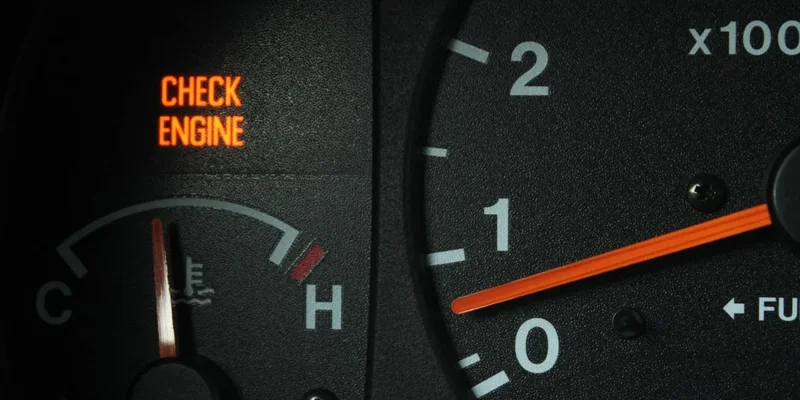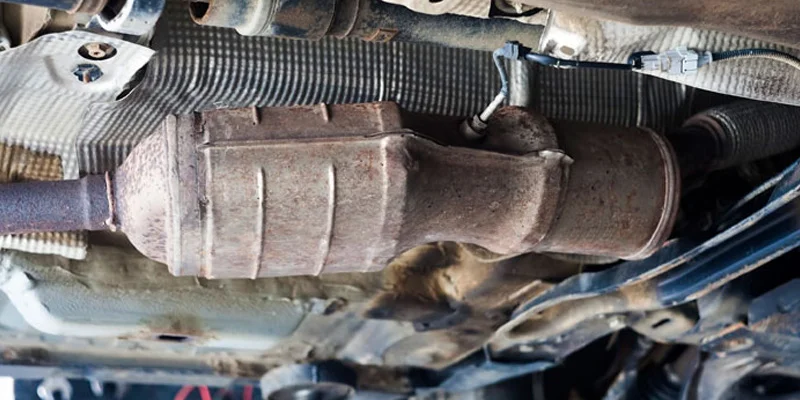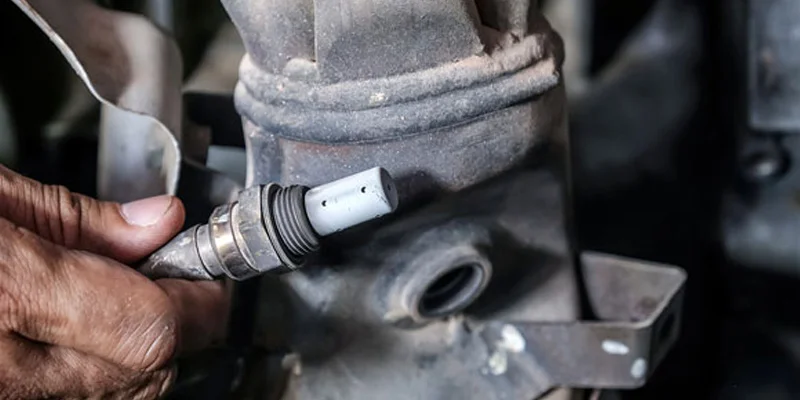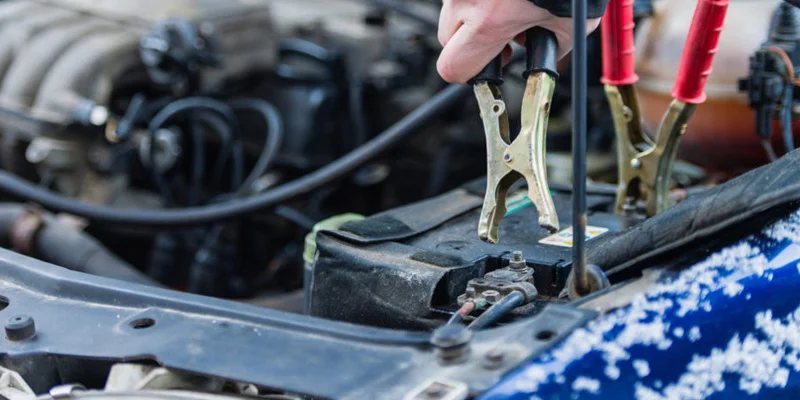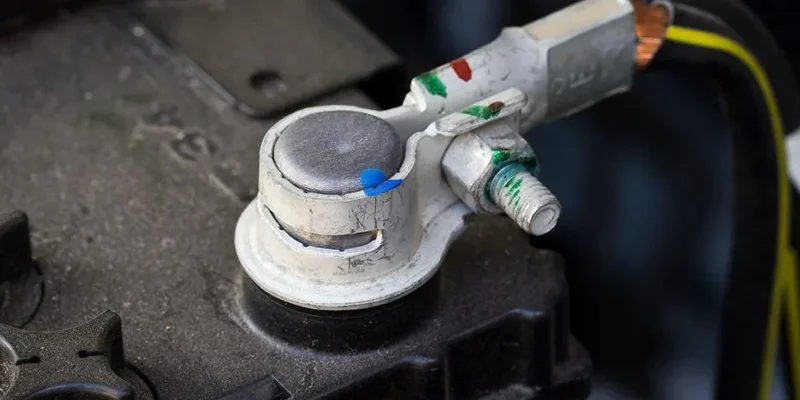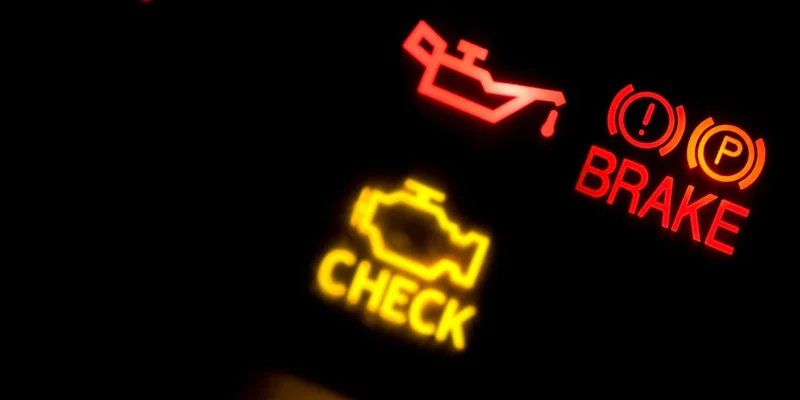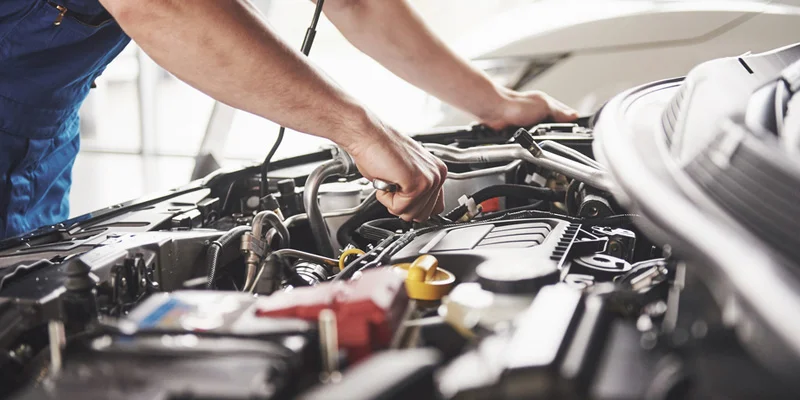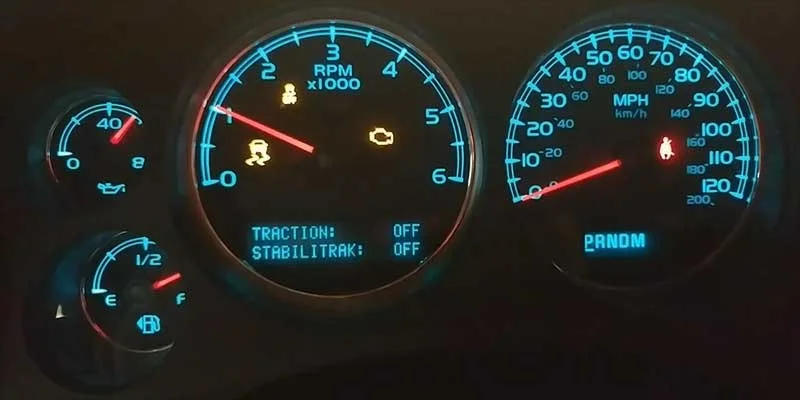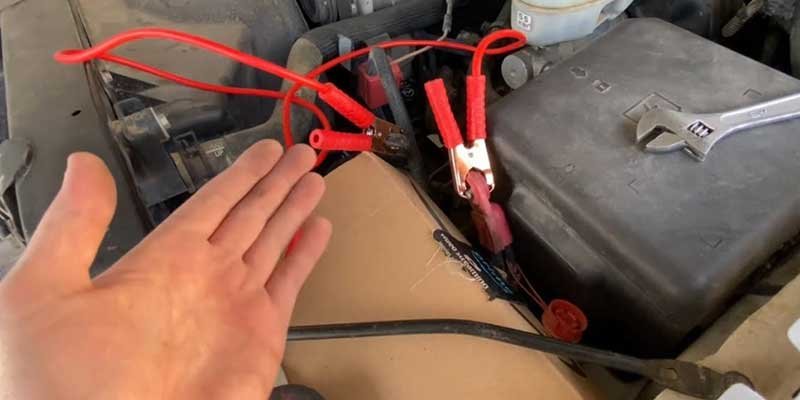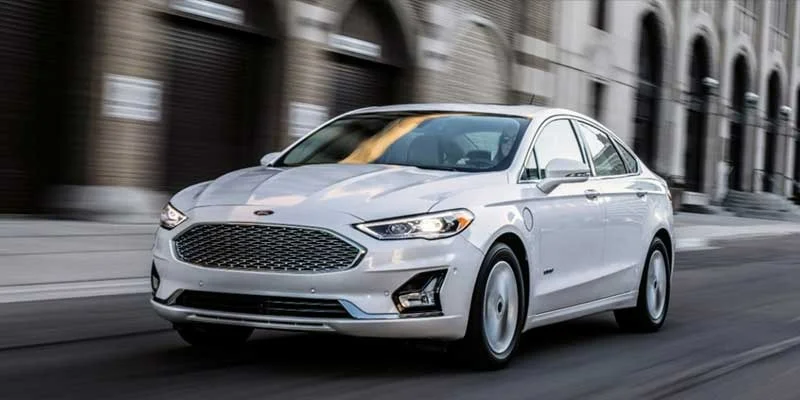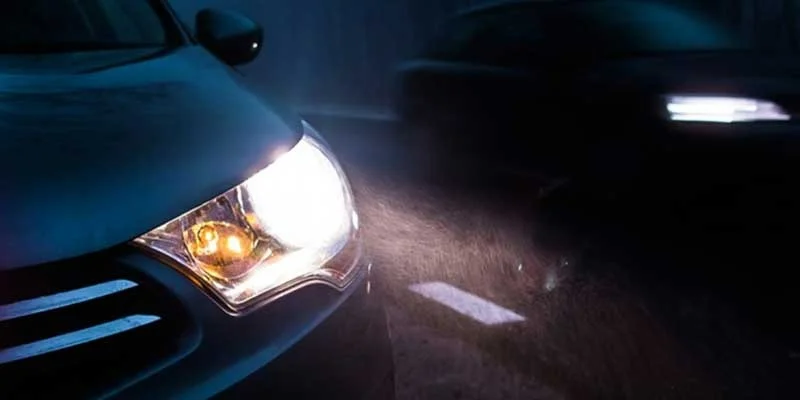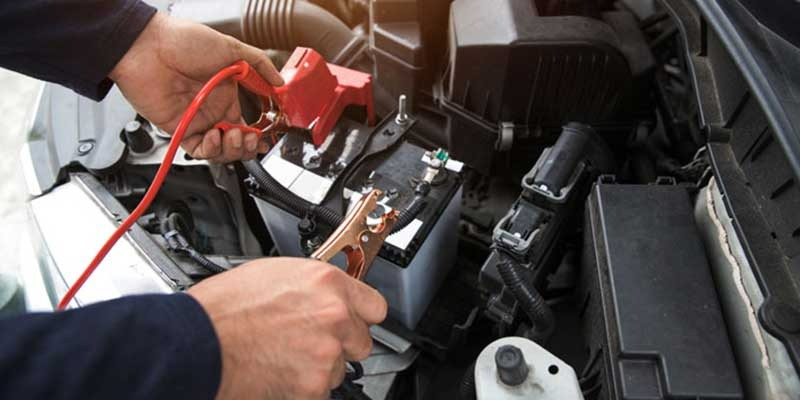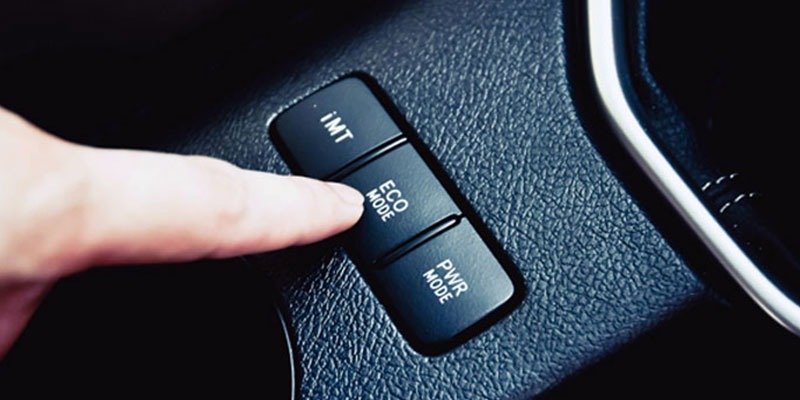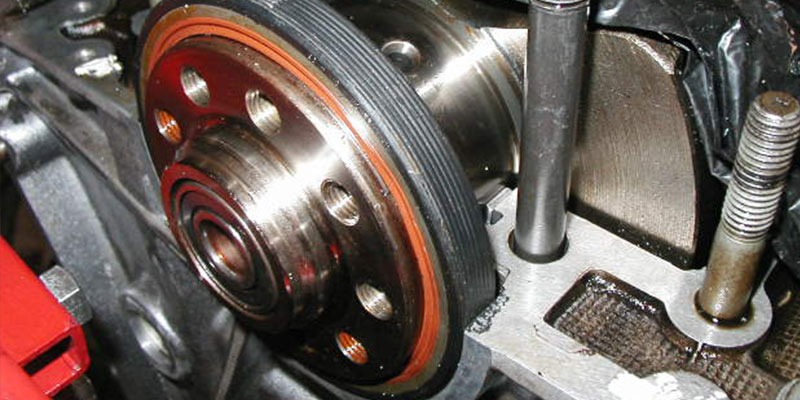What could be wrong if your check engine light is on, but there are no trouble codes? It could be several things, and it’s best to take the car to a mechanic to get it checked out. This article will go over some of the most common reasons why this might happen.
Misfire
A misfire is one potential reason for a check engine light with a no trouble code. It could be caused by several things, such as a bad spark plug, low fuel pressure, or a vacuum leak. If your car is misfiring, it can cause problems, including decreased fuel economy, reduced power, and even damage to the catalyst.
Possible Causes
- Spark Plugs are worn out/bad
- Spark Plug Wires are broken or damaged
- Spark plug gap is improperly set
- Oxygen Sensor is not working
- Fuel Pressure is low
- Vacuum Leak
Bad Catalytic Converter
If your check engine light is on, but there are no trouble codes, it could be a sign that you have a bad catalytic converter. The catalytic converter helps reduce harmful emissions from the car, and if it is malfunctioning, the check engine light will come on.
Directly replacing your catalytic converter might fix this problem, but in some cases, it can cause other issues with exhaust backpressure or emissions. It’s best to have a mechanic diagnose the problem before spending money on new parts.
Possible Causes
- The Catalytic Converter is faulty
- The exhaust system Manifold is cracked or corroded
- The exhaust Gasket is leaking
- EGR Valve is stuck open
- PCV Valve is blocked or defective
- Fuel Injectors are dirty or clogged
Bad O2 Sensor
Check engine light illuminates due to bad oxygen sensor. The oxygen sensor helps monitor the air/fuel mixture in the car. If it is not working correctly,
Possible Causes
- Oxygen Sensor is faulty
- The sensor wire is damaged/faulty
- The connector has a poor electrical connection
Change Your Oil! Last but not least, one common reason that many people may get a check engine light without any error codes is if their oil is overdue for a change. Oil is essential to the proper functioning of your car’s engine, and if it’s not changed regularly, it can cause all sorts of problems.
If you’ve been driving around for a while with the check engine light on and there are no trouble codes, it might be good to change your oil and see if that fixes the problem.
My Engine Lacks Power
As with a misfire, if your car lacks power or is experiencing trouble going up hills that it usually doesn’t have, you may want to look into the problem. Low oil levels can cause issues with lubrication in engine components, which may show up as a lack of power.
Possible Causes
- Oil Level is low
- Fuel Filter is clogged
- Injectors are Dirty
- Spark Plugs are fouled/bad
If your engine lacks power, it’s always best to get the codes to read at a local garage or dealership. It will help you identify the problem and may save you from having to replace parts that are not the problem.
My Starter Motor Doesn’t work in the Cold
One of the most common complaints is that the starter motor sounds wheezy in cold weather or won’t start at all. Several things can cause this condition.
The oil may have separated from the fuel, leaving an emulsion in your car’s fuel lines. If you are running on this emulsion, your starter may work fine in the summer when fuel is easier to combust but will struggle during the winter months when you need it most.
Possible Causes
- The starter is worn out/bad
- The battery is low or dead
- Oil has separated from the fuel
- Fuel Lines are clogged
- Fuel Filter is clogged
- Injectors are Dirty
If your starter motor isn’t working in cold weather, the best thing is to get the codes to read and diagnosed by a professional. It will help you determine the exact problem and save you from having to replace parts that may not be the issue.
Connections are corroded or dirty
Engine Cranks over Compression If your engine cranks slowly over compression or is reluctant to turn over, you may have air in your cylinders.
When this happens, the problem lies somewhere in the fuel system and needs to be identified before repairs. You can try to start your car without having a lot of air in the cylinders, but it’s going to be very hard on your starter motor and battery if you do this.
Possible Causes
- Fuel Injectors are clogged up/dirty
- Injector O-rings are worn or leaking
- Coil Pack is faulty
- Ignition wire is corroded or has a poor connection
- Air Filter is dirty
- PCV Valve is blocked or defective
- Bad Spark Plugs
If your engine cranks over-compression slowly, you should try to get the codes to read and diagnosed by a professional. It will help you determine the exact problem and save you from having to replace parts that may not be the issue.
My Car is using too much Gasoline
Like a car that lacks power, if your vehicle is running rich (too much fuel and not enough oxygen), it can cause problems. It can be caused by anything from an obstructed exhaust or catalytic converter to dirty injectors and faulty sensors.
Possible Causes
- Leaking injectors
- Underinflated tires
- Automatic transmission issues
- Transmission fluid levels
- Clogged MAF sensor
- Struck open or failing thermostat
- Dragging brakes
If your car is using too much gasoline, you should try to get the error code read and diagnosed by a professional. It will help you determine the exact problem and save you from having to replace parts that may not be the issue.
My Check Engine Light is on
If your check engine light is on, it’s essential that you get the error code read and diagnosed by a professional. Many people are unaware that the loose or faulty gas cap also leads to checking engine light due to fuel evaporation.
You can try starting your car without waiting for the light to turn off, but checking the oil level or topping up the window washer fluid while your car is lit up can be hard on your starter motor.
Possible Causes
- Throttle body needs cleaning
- Spark plugs are misfiring or faulty
- Engine timing may be out of tolerance
- The catalytic converter has failed or is obstructed
- Bad fuel injectors
- MAF sensor is dirty or faulty
- EGR valve is not functioning
- The oxygen sensor is faulty
If your check engine light is on, you must get the codes read and diagnosed by a professional. It will help you determine the exact problem and save you from having to replace parts that may not be the issue.
If you’re starting your car in cold weather, but it stalls after running for more than 10 seconds, it usually causes concern.
How to prevent it?
As they say, prevention is better than cure. Here are some car maintenance tips that help you ensure that there is no trouble with checking engine lights later on.
- Top up all fluids regularly to prevent leakage
- Ensure that your tires are inflated according to specified pressure recommendations
- Change oil and filter according to a specified schedule.
- Keep the engine well-tuned to have good fuel economy, smooth engine operation, and reduce emissions. Avoiding revving the car in idle or low gears may also help save the engine from any damage caused by too much stress.
- Worn-out spark plugs can be a reason for stalling in cold weather. Change them as soon as possible. There are chances that the reason behind your car not starting may be solved with this simple fix!
- Make sure that you change your oil regularly according to manufacturer recommendations.
- Keep your engine tuned up and properly maintained to avoid future problems.
- If you suspect a misfire, get the engine codes to read at a local garage or dealership before spending money on parts that may not be necessary.
- Keep the exhaust system clean to prevent any clogging.
- Every auto dealership (depending on which country you live in) has its diagnostic tool that will connect to your car and read the codes stored in your car’s computer.
The code(s) will help them narrow down which system is causing you trouble and determine where to start looking for the problem.
They will also be able to tell whether or not they can clear out the code or if it’s something that needs to be addressed by a professional.
Note: If your car is misfiring because of a bad spark plug, low fuel pressure, or a clogged fuel injector, replacing just the spark plugs, fuel pressure regulator or fuel injectors may fix the problem.
If you’ve been driving around for a while with the check engine light on and there are no codes, it might be good to change your oil and see if that fixes the problem. In some cases, it’s possible to fix the problem without spending a lot of money on parts.
It is essential to know the possible causes of a check engine light without any codes to have a better idea of what might be wrong with your car. By following the prevention tips listed above, you can help avoid future problems and keep your vehicle running smoothly. If you have recently had the engine codes read and were all clear, it’s probably worth your time to get your car checked out by a professional.
Frequently Asked Questions
Why is my check engine light on but no codes?
There are several reasons why your check engine light might be on without any codes. Some of the most common causes include a faulty oxygen sensor, a damaged or faulty sensor wire, or a poor electrical connection.
What should I do if my check engine light is on, but there are no codes?
If your check engine light is on, but there are no codes, the best thing to do is take the car in toto a mechanic and check it out. There may be several different things causing the problem, so it’s essential to get it diagnosed and fixed as soon as possible.
What does it mean when a car has no codes?
If your car has no codes, there is no specific problem causing the check engine light to turn on. Without any particular code triggering the light, you will need to bring your vehicle in and have a mechanic diagnose the problem and fix it.
Why does my car have no power?
There are several reasons why your car might have no power. It can be a bad spark plug, a clogged fuel injector or even low fuel pressure. If there are no engine codes, the problem may be something as simple as a dirty air filter.
Can my check engine light come on for no reason?
Yes, your check engine light can come on for no reason. In some cases, there may be a problem with the car’s emission control system that is not causing any specific engine codes. By knowing the possible causes of a check engine light without any codes, you can at least have a better idea of what might be causing your problem.
The possible causes of a check engine light without any codes can be anything from a bad spark plug to a damaged sensor wire. By following the prevention tips listed above, you can help avoid future problems and keep your car running smoothly. If you have recently had the engine codes read and were all clear, it’s probably worth your time to get your vehicle checked out by a professional.
Will check engine light reset itself?
A check engine light can reset itself, but it is not likely. If your car has no codes and the light comes on, you will need to take it in toto a mechanic to find out what is causing the problem and fix it.
There is no simple solution in most cases, and the problem will need to be addressed by a professional. A Code Scanner has the software and communication capabilities to pull recent codes from the vehicles control module.
If your check engine light comes on, but there are no codes, it could signify several problems. It’s best to take the car to a mechanic to check it out and find out what is causing the pain. It may be something as simple as a bad spark in some cases.
Conclusion
If your check engine light comes on, but there are no codes, it could signify several problems. It’s best to take the car to a mechanic to get it checked out and find out what is causing the problem. In some cases, it may be something as simple as a bad spark plug or an overdue oil change, but in other cases, it could be something more serious.
By knowing the possible causes of a check engine light without any codes, you can at least have a better idea of what might be causing your problem. If you recently had the engine codes read and were all clear, it’s probably worth your time to get your car checked out by a professional.

My Name is Christopher Angels, and I am a postgraduate in mechanical engineering. Cars have always excited me as a child, and soon I decided to dive into the world of cars by pursuing mechanical engineering. I also worked as a Mechanic for over 3 years to understand Cars’ anatomy and how each part contributes to its working.
My Name is Christopher Angels, and I am a postgraduate in mechanical engineering. Cars have always excited me as a child, and soon I decided to dive into the world of cars by pursuing mechanical engineering. I also worked as a Mechanic for over 3 years to understand Cars' anatomy and how each part contributes to its working.

